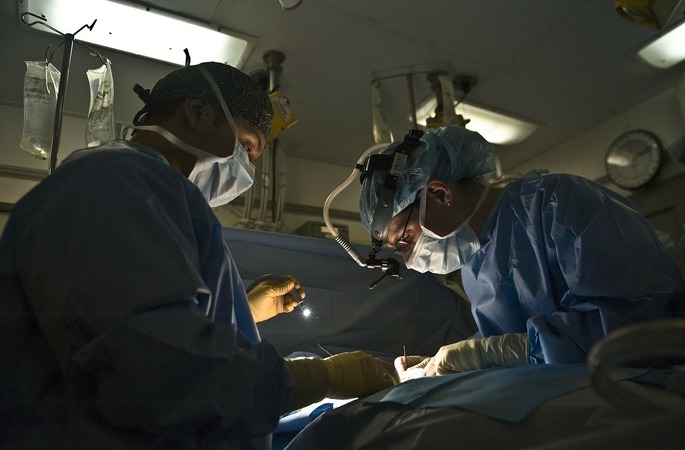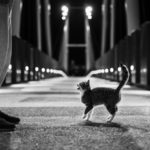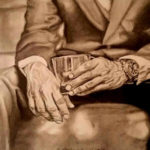In 2017, I was in Italy for nearly three months for a medical scholarship. During that time, I met a well talented and quite humble bunch of people. This particular hospital in the city of Bergamo in Lombardia district had many doctors who’ve served the same hospital for most of their career.
Some have not moved to any other place in their whole life.
When they inquired about where I’d be working when I’m back in Sri Lanka, I had to give this long explanation about the transfer system of Sri Lankan doctors and how it works and how I cannot really say where I’d be stationed in the future.
Sri Lanka boasts of its’ cost-efficient healthcare system. This health care system is run by the medical staff of all levels that are faced with the phenomenon of “island-trotting” till they retire. It doesn’t seem right for any person who wants to build a house and settle down in one place. But I had to explain to them, that due to the poor resource distribution, inequal infrastructure development, the government have to adapt this transfer scheme to provide a reasonable service to all the citizens of Sri Lanka.
Even though I’m sure many other professions also have this kind of transfer issues, from the perspective of a doctor, sometimes the struggle doesn’t seem to end.
To summarise, junior doctors who pass out from the university is placed in a ranking system to be posted into their internship stations, which are Base Hospital category and above grade, scattered around the island.
Then, after that one year (of pure labour), the post intern doctors are again put into the same ranking system to hospitals of all levels, from Point Pedro to Battalangunduwa to Deniyaya, to Chettipalam to Sainthamarundu. These range from one-person central dispensaries to teaching hospitals.
And if you do not decide to sit for a postgraduate exam, you’d be stuck there for at least 3-4 years, until another junior doctor replaces that post. If a replacement is received, you may have the luck to reach your home town eventually.
Suppose for some reason or the other; a doctor decides to sit for a postgraduate exam. In that case, they will be sent around the main teaching hospitals, in cities like Colombo, Kandy, Galle, Jaffna and now Anuradhapura for the next three to six years depending on the postgraduate stream selected.
And finally, when all the dues are done, and exams are under the belt, these doctors should go abroad, for a minimum of one year to a developed country such as Great Briton, US, Australia or New Zealand for medical training.
This is a pre-requisite to practise as a consultant in Sri Lanka. (This is one of the best features of Sri Lankan postgraduate system, drawing much envy from many other countries. I firmly believe, despite the ordeal, a doctor has to go through, it’s because of this exposure, into the bigger developed world, our health care system shines far better than the neighbouring countries.
This exposure has made our benchmark high in the eyes of young consultants- A higher zenith to aspire to even with the meagre resources we have at hand. With a bond sighed with the Ministry of Health, every doctor who goes on this training is bound to serve the island upon their return.
I remember my Italian professor being highly impressed with this system.
So when one returns from the foreign training, it’s as if you are back to square one. These consultants are again added into a seniority list in their respective fields. And then they are posted to all the four corners of the island, as consultants. Each posting will be for a minimum of two years.
So in the end, with all those studying and exams, you will be away from home again. And one comes to wonder, “What’s all that for?”.
When people ask “Where do you work? Where does your spouse work? Kids school? Where and when are you settling?” We don’t really have one answer to give, as we’d be island-trotting till we are fifty years or so.
But I guess as the quote goes… “A Ship in Harbour Is Safe, But that Is Not What Ships Are Built For” Maybe we are not meant to stay in one place. Like Nomads, we are meant to roam. Maybe we have to console ourselves, muttering “We make our own choices… We pay our own prices.”
Can we blame the government for that? Yes and No.
Yes, because it’s the inequities of resource distribution in the island that has created rural stations and urban stations, developed areas and underdeveloped areas, accessible areas and difficult stations.
No, because to give a bare minimum of a reasonable health service, it seems mandatory to send doctors to the periphery-the Eerie Enigmatic East, the Nearly Neverland North, North West and South East as well.
The Wild Wild West, Central and Southern parts of the island are the popular hubs to settle down as it’s the most populated and resource-rich area.
There are very few local people who serve in these peripheral hospitals. The large majority have to leave their families in some other district and are compelled to serve in the periphery. Most of their time and youth is spent in travelling the long distances from Home to Work back and forth. They manage to exist during the weekends, arranging shifts, living a meagre life in shanty quarters like borders even after being parents.
And then some people come to wonder,” For what?”
That’s when the option of migration comes into many peoples’ mind- An utopian oasis where you can work and live in your chosen area as long as you wish and the resource distribution is acceptable. These countries will have their own peripheries, but somehow, the prospects of living with your family in a periphery of a developed country with more adequate facilities seem to a better option, than traversing across the island between your family and work.
When you can live with your family without this cross country running, people are left with the choice of crossing the oceans, to be together with their loved ones. When travelling the country on a daily or weekly basis becomes a massive and risky burden, navigating the mundane roads, bumpy rides, packed public transport, crazy traffic and adrenaline junkie fellow drivers on the road, one always wonder the things at stake. And we can never blame that decision of migrating, same as we cannot blame anyone for choosing to marry a particular person.
To come out of this island-trotting life, one may decide to serve the periphery in the initial phase of their career and do not do any postgraduate studies and stay in one chosen area. They might resign from the government sector and join other ventures. They might choose to join the university academic staff, or even quit altogether and stay at home.
But a good portion of the doctors still decides to go through this tedious journey of hopping from one station to the other and to the place they call home until a sufficient number of service years have passed to put them in the top of the seniority list.
Then finally you can reach home around your fifties.
One may think it’s a pathetic life. It is if you look at it that way. But which isn’t? Yet despite the risk of travelling, not so ideal food and lodging, most people find ways to see joy and satisfaction in what they do.
They choose to be the path makers of healthcare development in this island, rather than being a spoke wire of a well-established system abroad. They decide to build their own path starting with clearing the thickets rather than traversing a well-laid highway across the oceans. And that’s what keeps the Sri Lankan health service going. That’s what make the farmers that bring rice to your plate get the healthcare they need. That’s what makes the country breathe.
And next time when you get a dismayed hearing about your friends’ or relatives’ workplace and think they are imbeciles to abide by these stupid transfer system, know that they serve a bigger purpose in life than living for themselves.
They may not think of it in that way themselves. They may even consider it a chore. They may not want to be martyrs at all and just wants to be saved, but they help a country breathe.
And that makes all the difference.



